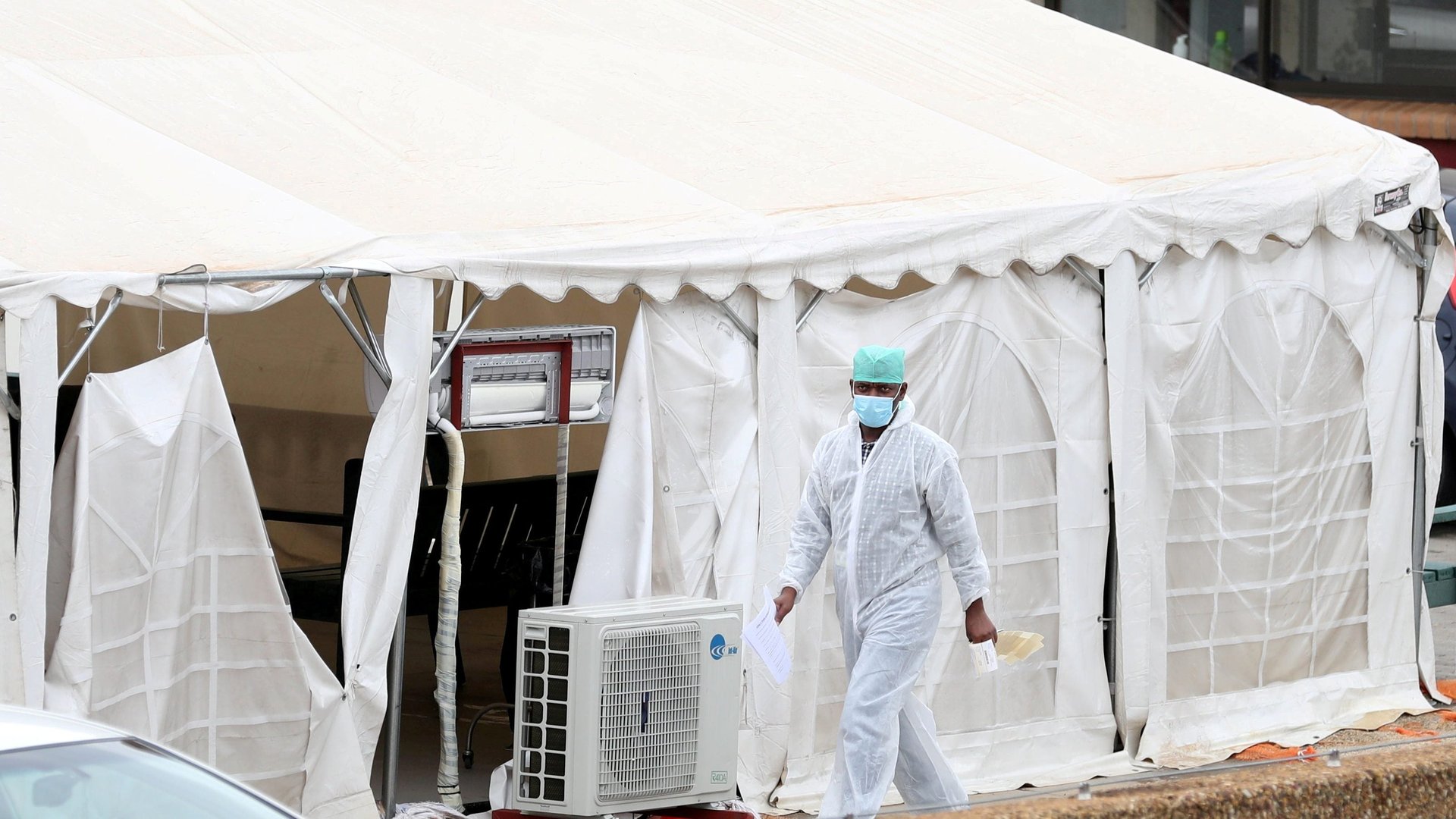South Africa seemed the best equipped African country for Covid-19 till a new variant started spreading
The coronavirus pandemic in South Africa has reached a record new level driven by the more infectious novel Covid-19 variant—the 501Y.V2—discovered in the country on Dec. 19 and now set to be the dominant variant, according to local scientists.


The coronavirus pandemic in South Africa has reached a record new level driven by the more infectious novel Covid-19 variant—the 501Y.V2—discovered in the country on Dec. 19 and now set to be the dominant variant, according to local scientists.
South Africa is the hardest-hit African country by Covid-19 with over 1.26 million cases and over 34,000 deaths. It now has highest daily infections, hospital admissions, and deaths since the beginning of the pandemic in the country last year and local hospitals are being overwhelmed.
On Jan. 11 South African president Cyril Ramaphosa was forced to extend the country’s unpopular coronavirus restrictions due to the “massive” spike in cases and closed beaches, public parks, and banned alcohol sales. He described the pandemic’s impact on the country to be at its “most devastating.”
South Africa, which has one of the best healthcare systems in Africa and several leading medical research centers, has also done the highest number of tests and has been the most active in the search for vaccines on the continent. The government says it will be getting 1.5 million doses of AstraZeneca vaccine from the Serum Institute India for its health workers starting this month.
South African authorities also announced the country has secured 20 million doses of vaccines expected to be delivered this year. While the majority of the vaccines the country plans to secure require two doses to be effective, the plan is to vaccinate 40 million people or two-thirds of its population to reach immunity,
However, there are new concerns that a mutation in the South African variant may decrease the efficacy of current Covid-19 vaccines. The South African variant has multiple mutations and one of the mutations—called E484K or an “escape mutant”—as observed might be able to escape some antibodies and therefore reduce the efficacy of current vaccines.
This adds to earlier worries that there is not enough genomic data of the virus available in Africa being considered for the development of the new vaccines, and enough clinical trials not done in Africa.
But professor Glenda Gray, president of the South African Medical Research Council (SAMRC) believes the new vaccines would still be effective regardless of these concerns. “Vaccines induce a broad and variable response, so we don’t think it will affect the vaccine,” she said. “But we do need to monitor this and evaluate whether it has an impact on vaccine efficacy. We need to evaluate what role it plays in re-infection.”
While there is an emphasis on a further study of the variant to understand its impacts on the population, it will be difficult to track and study the mutation in Africa. This is because most African countries do not routinely run genome sequencing of the coronaviruses circulating among the population, which is required to monitor their spread and mutations of the virus.
Scientists believe there is a high chance the more infectious South African variant is already spreading across the continent. South Africa is a major employment and trade hub for Africans, particularly in the southern region.
Sign up to the Quartz Africa Weekly Brief here for news and analysis on African business, tech, and innovation in your inbox